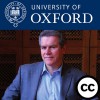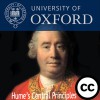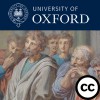Faculty of Philosophy

Oxford is one of the world's great centres for philosophy. More than one hundred and fifty professional philosophers work in the University and its colleges, between them covering a vast range of subjects within philosophy. Many are international leaders in their fields. The Faculty of Philosophy is one of the largest departments of philosophy in the world, and is widely recognized to be amongst the best.
Its reputation draws many distinguished visiting philosophers; each year around fifty philosophers from around the world give lectures or seminars in Oxford. Almost every major philosopher speaks in Oxford at some time.
Each year, more than five hundred undergraduates are admitted to study philosophy in Oxford, always in combination with another subject. The Faculty also has more than a hundred graduate students, who are either taking a taught graduate degree or working for a doctorate.
Oxford is a collegiate university, and every registered student becomes a member of one of the colleges. In this way, he or she has access, not only to the very extensive libraries and facilities of the University, but also to the varied and more intimate life of a college. Colleges offer their students excellent libraries and facilities of their own.
Teaching at Oxford is by lectures and seminars, and by tutorials or supervisions. Courses of lectures and seminars are offered on a very large range of topics, for both undergraduates and graduates. Tutorials are a special feature of Oxford; undergraduates receive regular and frequent tutorials either individually or in pairs from members of the Faculty. All graduate students also receive frequent individual supervisions.
Oxford University dates from the 12th Century or before. The first colleges were founded in the 13th Century. The ancient buildings remain, mingled with magnificent architecture from subsequent centuries, to make Oxford one of the most inspiring and beautiful cities in the world. Within this setting, Oxford remains at the forefront of philosophy.
Series associated with Faculty of Philosophy
| # | Episode Title | Description | People | Date | |
|---|---|---|---|---|---|
| 338 | Creative Commons | Hume on Personal Identity | The fifth part of Professor Dan Robinson's series on Reid's critique of David Hume. | Dan Robinson | 14 May 2014 |
| 337 | Creative Commons | Reid on Causation and Active Powers | The fourth part of Professor Dan Robinson's series examining Reid's critique of David Hume. | Dan Robinson | 14 May 2014 |
| 336 | Creative Commons | Hume on Causation | The third part of Professor Dan Robinson's series examining Reid's critique of David Hume. | Dan Robinson | 14 May 2014 |
| 335 | Creative Commons | Reid and Common Sense Realism | Part two of Professor Dan Robinson's examination of Reid's critique of David Hume. | Dan Robinson | 14 May 2014 |
| 334 | Creative Commons | The “representational” theory of knowledge | Professor Dan Robinson, Oxford University, delivers the first part of his series examining Reid's Critique of Hume. | Dan Robinson | 14 May 2014 |
| 333 | Creative Commons | The inevitable implausibility of physical determinism | Richard G. Swinburne, Emeritus Professor of Philosophy, University of Oxford, gives a talk for the New Insights and Directions for Religious Epistemology seminar series. | Richard Swinburne | 12 May 2014 |
| 332 | Two Concepts of Emergence | Timothy O'Connor (Indiana) gives a talk for the Power Structuralism in Ancient Ontologies podcast series. | Tim O'Connor | 07 May 2014 | |
| 331 | Creative Commons | Processes and Powers | John Dupré (Exeter) gives a talk for the Power Structuralism in Ancient Ontologies podcast series | John Dupré | 07 May 2014 |
| 330 | Creative Commons | Powers: Necessity and Neighbourhoods | Neil Williams (Buffalo University) gives a talk for the Power Structuralism in Ancient Ontologies podcast series | Neil Williams | 07 May 2014 |
| 329 | Creative Commons | Causal Production as Interaction: a Causal Account of Persistence and Grounding | Rögnvaldur Ingthorsson (Lund University) gives a talk for the Power Structuralism in Ancient Ontologies podcast series | Rögnvaldur Ingthorsson | 07 May 2014 |
| 328 | Creative Commons | Doing Away With Dispositions: Towards a Law-Based Account of Modality in Science | Stephen French (Leeds) gives a talk for the Power Structuralism in Ancient Ontologies series. | Stephen French | 18 Feb 2014 |
| 327 | Creative Commons | Quidditism and Modal Methodology | Alastair Wilson, Birmingham, gives a talk for the Power Structuralism in Ancient Ontologies series | Alastair Wilson | 18 Feb 2014 |
| 326 | Creative Commons | The Fundamentality of the Familiar | Nick Jones, University of Birmingham, gives a talk in which he appeal to an examination of the explanatory role of ordinary macroscopic objects to argue that some of them are metaphysically fundamental. | Nick Jones | 18 Feb 2014 |
| 325 | Creative Commons | Aristotle's Dynamics in Physics VII 5: the Importance of Being Conditional | Henry Mendell (California State) gives a talk for the Power Structualism in Ancient Ontologies series | Henry Mendell | 18 Feb 2014 |
| 324 | Creative Commons | Aristotle on the Happiness of the City | Don Morison (Rice) gives a talk for the Power Structualism in Ancient Ontology series. | Don Morison | 18 Feb 2014 |
| 323 | Creative Commons | Pluralism and Determinism | Thomas Sattig (Tübingen) gives a talk for the Power Structualism in Ancient Ontologies series. | Thomas Sattig | 18 Feb 2014 |
| 322 | Creative Commons | Inclination and the Modality of Dispositions | Mark Sinclair (Manchester Metropolitan) gives a talk for the Power Structualism in Ancient Ontologies series | Mark Sinclair | 18 Feb 2014 |
| 321 | Creative Commons | Can We Make Sense of Metaphysical Knowledge? | Claudine Tiercelin (Collège de France) gives a talk for the Power Structuralism in Ancient Ontologies series. | Claudine Tiercelin | 18 Feb 2014 |
| 320 | Stilpo of Megara and the Uses of Argument | Nick Denyer (Cambridge) gives a talk for the Power Structuralism in Ancient Ontologies podcast series | Nick Denyer | 13 Feb 2014 | |
| 319 | Marcus Aurelius' Meditations: How Stoic are They? | Christopher Gill (Exeter) gives a talk on Marcus Aurelius' Meditations and asks How Stoic are They? | Christopher GIll | 13 Feb 2014 | |
| 318 | Creative Commons | Moral Development and Self-Knowledge in Aristotle | Steve Makin, (Sheffield) gives a talk for the Power Structualism in Ancient Ontologies podcast series | Steve Makin | 13 Feb 2014 |
| 317 | Creative Commons | Freedom and Responsibility Revisited | Richard Sorabji gives a talk for the Power Structuralism in Ancient Ontolgies podcast series | Richard Sorabji | 13 Feb 2014 |
| 316 | Creative Commons | Collective Agency and Knowledge of Others' Minds | Stephen Butterfill gives a talk on philosophy and collective agency and other people's minds | Stephen Butterfill | 12 Feb 2014 |
| 315 | Creative Commons | Aristotle on Singular Thought | Mika Perala gives a talk on Aristotle's philosophy | Mika Perala | 12 Feb 2014 |
| 314 | Creative Commons | Multimodal Perception and the Distinction Between the Senses | Louise Fiona Richardson gives a talk on philosophy and perception | Louise Fiona Richardson | 12 Feb 2014 |
| 313 | Common Sense and Metaperception | Jerome Dokic gives a talk on common sense and philosophy | Jerome Dokic | 12 Feb 2014 | |
| 312 | Creative Commons | The Causal Power of Structure and the Role of Intellect | Howard Robinson gives a talk on philosophy and the role of the intellect | Howard Robinson | 12 Feb 2014 |
| 311 | Creative Commons | Aristotle on the Problem of Common Sensibles | Anna Marmodoro gives a talk on Aristotle and his philosophy | Anna Marmodoro | 12 Feb 2014 |
| 310 | Creative Commons | Justification for Killing in War | Nigel Warburton talks with Seth Lazar on the ethics and justification of killing in war | Seth Lazar, Nigel Warburton | 08 Jan 2014 |
| 309 | Creative Commons | Uehiro Seminar: Is Networking Immoral? | If networking is considered to be either cultivating non-merit-based favouritism or demonstrating one’s merit in advance of formal selection processes, then I argue that it is an attempt to gain illegitimate advantage over competitors and is thus immoral. | Ned Dobos | 05 Dec 2013 |
| 308 | St Cross Seminar: Genetic parenthood, assisted reproduction, and the values of parental love | I argue that the value of love in friendship illuminates issues about parental love and examine whether allowing same-sex couples access to adoption has any bearing on the moral status of prohibitions on same-sex couples using assisted reproduction. | Justin Oakley | 04 Dec 2013 | |
| 307 | Creative Commons | 2013 Wellcome Lecture in Neuroethics: The Irresponsible Self: Self bias changes the way we see the world | Humans show a bias to favour information related to themselves over information related to other people. How does this effect arise? Are self biases a stable trait of the individual? Do these biases change fundamental perceptual processes? | Glyn Humphries | 04 Dec 2013 |
| 306 | Creative Commons | Uehiro Seminar: Do antidepressants work and if so how? | Antidepressants are commonplace yet there is much debate about their clinical efficacy. Are they merely placebos or do they have a clinical effect on the way our brains work? In this presentation, Professor Cowen investigates the evidence. | Phil Cowen | 04 Dec 2013 |
| 305 | Uehiro Seminar: Cyborg justice: human enhancement and punishment | We explore some possible interactions between enhancement technology and punishment, reflect on ethical issues that arise as a result, and consider what our justice system must do in order to ensure that it keeps pace with developments in technology. | Rebecca Roache, Anders Sandberg, Hannah Maslen | 19 Nov 2013 | |
| 304 | Uehiro Seminar: The struggle between liberties and authorities in the information age | The talk discusses the balance between cyber security measures and individual rights - any fair and reasonable society should implement the former successfully while respecting and furthering the latter. | Mariarosaria Taddeo | 13 Nov 2013 | |
| 303 | Creative Commons | What is faith? | New Insights and Directions for Religious Epistemology lecture by Dan Howard-Snyder (Washington), 29th October 2013. | Dan Howard-Snyder | 06 Nov 2013 |
| 302 | Creative Commons | St Cross Seminar: Neither God nor Nature. Could the doping sinner be an exemplar of human(ist) dignity? | If doping were done in a healthy and fair way, would it be OK? If so, all wrongs would lie in doping abuses involving health risks, deceit and unfairness. I argue that perhaps the doping sinner best exemplifies human dignity and existential authenticity. | Pieter Bonte | 23 Oct 2013 |
| 301 | Creative Commons | Uehiro Seminar: Ethics and Expectations: Part II | The trolley problem is a thought experiment in ethics. Outside traditional philosophical discussion, the trolley problem has been a significant feature in the fields of cognitive science and neuroethics. | Seth Lazar | 21 Oct 2013 |
| 300 | Creative Commons | The Persistence of Animate Organisms | Rory Madden, Lecturer in Philosophy at University College London, gives a talk about animate organisms for the Power Structuralism in Ancient Ontologies Project. | Rory Madden | 23 Aug 2013 |
| 299 | Creative Commons | Freedom and Responsibility Revisited | Professor Richard Sorabji, Wolfson College Oxford, gives a talk on freedom and responsibility as part of the series 'Talks on Powers, Structures and Relations in Ancient Philosophy'. | Richard Sorabji | 23 Aug 2013 |
| 298 | Creative Commons | Causes, Powers and Structures in a Factored Process Ontology: Solutions and Lacunae | Peter Simons, Professor of Philosophy, Trinity College, Dublin, gives a talk as part of the series 'Metaphysics of Powers, Causation and Persons'. | Peter Simons | 23 Aug 2013 |
| 297 | Creative Commons | There are Mechanisms, and Then There are Mechanisms | Mechanisms are at centre-stage right now in philosophy of science, especially in discussions of causal explanation and causal inference. | Nancy Cartwright | 23 Aug 2013 |
| 296 | Cartesian Transubstantiation | John Heil, Professor of Philosophy, Washington University in St Louis, gives a talk on Cartesian Transubstantiation. | John Heil | 23 Aug 2013 | |
| 295 | Creative Commons | Powers, Functions and Parts: the Stoics (and Others) on the Nature of the Passions | Professor Jim Hankinson, University of Texas at Austin, gives a talk for the Power Structuralism in Ancient Ontologies project. | Jim Hankinson | 23 Aug 2013 |
| 294 | Creative Commons | Aristotelian v. Contemporary Perspectives on Relations | Jeff Brower, Associate Professor of Philosophy, Purdue University, gives a talk explaining the key differences between Aristotelian and more contemporary theories of relations. | Jeffrey E Brower | 23 Aug 2013 |
| 293 | Creative Commons | Structure and Quality | A talk from Galen Strawson, Professor of Philosophy, University of Texas. | Galen Strawson | 23 Aug 2013 |
| 292 | Creative Commons | Freedom and Indifference in Marcus Aurelius | John Sellars, Wolfson College, Oxford, gives a talk as part of the series "Marcus Aurelius: Philosophical, Historical, and Literary Perspectives". | John Sellars | 23 Aug 2013 |
| 291 | Creative Commons | Marcus on Becoming Whole | Michael Griffin, Assistant Professor in Philosophy at University of British Columbia, gives a talk as part of the series "Marcus Aurelius: Philosophical, Historical, and Literary Perspectives". | Michael Griffin | 23 Aug 2013 |
| 290 | Creative Commons | Religious Debate and Religious Competition in the Age of Marcus Aurelius | Mark Edwards, Christ Church College, Oxford, discusses religion in the age of Marcus Aurelius as part of the series "Marcus Aurelius: Philosophical, Historical, and Literary Perspectives". | Mark Edwards | 23 Aug 2013 |
| 289 | Creative Commons | Marcus Aurelius' Meditations - Is there a Core Project? | Professor Christopher Gill, University of Exeter, meditates on Marcus Aurelius as part of the series, "Marcus Aurelius: Philosophical, Historical, and Literary Perspectives". | Christopher GIll | 23 Aug 2013 |
| 288 | Creative Commons | Empedocles' Dynamic, Changeless World | In this talk Anna Marmodoro, Corpus Christi, Oxford, explore the view that Empedocles' world is both dynamic and changeless, and investigate the metaphysical account that Empedocles gives for such a world. | Anna Marmodoro | 23 Aug 2013 |
| 287 | Creative Commons | Powers in the cosmic cycle | A talk given by Professor Oliver Primavesi, Ludwig-Maximilians Universitat, from the series on Empedocles' Metaphysics. | Oliver Primavesi | 23 Aug 2013 |
| 286 | Creative Commons | Empedoclean Superorganisms | A talk about Empedoclean Superorganisms from Professor David Sedley, Christ's College, Cambridge, from the series on Empedocles' Metaphysics. | David Sedley | 23 Aug 2013 |
| 285 | Creative Commons | Which Things have Divine Names in Empedocles and Why? | A talk from Professor Catherine Rowett, University of East Anglia, from a series on Empedocles' Metaphysics. | Catherine Rowett | 23 Aug 2013 |
| 284 | Creative Commons | Elemental Change in Empedocles | John shows how recognising that the Empedoclean roots - fire, water, earth, and air - are subject to forms of generation and destruction consistent with his rejection into nothing. | John Palmer | 23 Aug 2013 |
| 283 | Creative Commons | Thinking Structure | Patricia Curd takes the problem of structure to cover both of these questions: (1) How is it that the cosmos is an organized system of diverse entities? (2) Why does this system maintain regularity over long periods of time? | Patricia Curd | 23 Aug 2013 |
| 282 | Creative Commons | Well-being in a Flux | Standard forms of desire-based theories of well-being claim that what is better for you is what you prefer. But how shall we decide whether one life is better for you than another when your preferences change across these lives? | Krister Bykvist | 25 Jul 2013 |
| 281 | Creative Commons | Well-Being for Autists: Some Conceptual and Methodological Issues | The aim of this paper is to provide some concrete guidelines for understanding and measuring the well-being of individuals affected by autism. I discuss the use of psychometric tests to understand and measure the well-being of autists. | Raffaele Rodogno | 08 Jul 2013 |
| 280 | Creative Commons | Benefitting Friends and Idealized Theories of Well-Being | In this paper I give an overview of the kind of idealized theory I endorse and describe the conditions under which a person can appropriately discount, ignore or override a friend's own conception of what's good for him or her. | Valerie Tiberius | 08 Jul 2013 |
| 279 | Creative Commons | Past Desires and Well-being | Some desires are conditional on their persistence and some are not. I aim to show that desire fulfilment theorists should reject the view that fulfilment of some of a person's past desires for the present contribute to her well-being. | Kazunobu Narita | 08 Jul 2013 |
| 278 | Creative Commons | Well-being and Desire | I address the question of what constitutes an addition to well-being. Perhaps under specifiable conditions what someone desires is pivotal to what should be done, even if fulfilment of the desires does not add to that person's well-being. | Brad Hooker | 08 Jul 2013 |
| 277 | Creative Commons | The Certain Intrinsic Desirability of Pleasure | I argue that intrinsically desiring to feel pleasure makes it certain that pleasure is intrinsically desirable for you, which it could not do if there is a non-natural, irreducible reason to desire pleasure for its own sake. | Ingmar Persson | 08 Jul 2013 |
| 276 | Creative Commons | Should one suffer at all? | The standard utilitarian view of happiness seems to be 'pleasure and the absence of pain'. But is the happiest life one in which there are no suffering at all? Or does one's life as a whole go better if there are some sufferings in it? | Satoshi Kodama | 08 Jul 2013 |
| 275 | Creative Commons | Plural Goods | Economists have tended to assess choices by their contribution to a single good, often pleasure or preference-satisfaction. I discuss how some values can be relevant to social and political choices, ie education, the free market, etc. | Thomas Hurka | 08 Jul 2013 |
| 274 | Creative Commons | Virtuous Climate Making? Towards a Virtue-Theoretic Approach to Geoengineering | Geoengineering, as a response to climate change, raises serious ethical and socio-political issues. Drawing on the latest developments in philosophy and ethics of technology and science, I consider a post-humanist way of analysing such issues. | Pak-Hang Wong | 03 Jul 2013 |
| 273 | Creative Commons | The Ethics of Infant Male Circumcision | In this talk, I argue that non-therapeutic circumcision of infants is unethical, whether performed for reasons of obtaining possible future health benefits, for reasons of cultural transmission, or for reasons of perceived religious obligation. | Brian Earp | 27 Jun 2013 |
| 272 | Creative Commons | Safe Disbelief | Religious Epistemology and the Safety Condition for Knowledge, New Insights and Directions for Religious Epistemology Workshop, 12th-13th June 2013. Day one 1st paper by Julien Dutant. Comments from Yoaav Isaacs and chaired by Charity Anderson. | Julien Dutant, Yoaav Isaacs, Charity Anderson | 20 Jun 2013 |
| 271 | Creative Commons | Are We Luminous? | Religious Epistemology and the Safety Condition for Knowledge, New Insights and Directions for Religious Epistemology Workshop, 12th-13th June 2013. Day one 2nd paper by Amia Srinivasan. Comments from Clayton Littlejohn and chaired by Matthew Benton. | Amia Srinivasan, Clayton Littlejohn, Matthew Benton | 20 Jun 2013 |
| 270 | Creative Commons | Knowledge and Safety | Religious Epistemology and the Safety Condition for Knowledge, New Insights and Directions for Religious Epistemology Workshop, 12th-13th June 2013. Day one 3rd paper by Duncan Pritchard. Chaired by Declan Smithies. | Duncan Pritchard, Declan Smithies | 20 Jun 2013 |
| 269 | Creative Commons | When does Data Count as Evidence? Reflections on CORNEA, Safety and Sensitivity | Religious Epistemology and the Safety Condition for Knowledge, New Insights and Directions for Religious Epistemology Workshop, 12th-13th June 2013. Day two 1st paper by Patrick Bondy. Comments from Sara Kier Praëm and chaired by Emil Moeller. | Patrick Bondy, Sara Kier Praëm, Emil Moeller | 20 Jun 2013 |
| 268 | Creative Commons | Knowledge by Way of Prophecy | Religious Epistemology and the Safety Condition for Knowledge, New Insights and Directions for Religious Epistemology Workshop, 12th-13th June 2013. Day two 2nd paper by Dani Rabinowitz. Comments Rachel Fraser, chaired by Daniel Berntson. | Dani Rabinowitz, Rachel Fraser, Daniel Berntson | 20 Jun 2013 |
| 267 | Creative Commons | Safety, Simplicity and Abduction. | Religious Epistemology and the Safety Condition for Knowledge, New Insights and Directions for Religious Epistemology Workshop held in Oxford University on 12th-13th June 2013. Day two 3rd paper by Tim Williamson. Chaired by Jeffrey Russell. | Tim Williamson, Jeffrey Russell | 20 Jun 2013 |
| 266 | Creative Commons | TT13 Uehiro Seminar: Attention, Action, and Responsibility | The speaker proposes a four-step account of action, within which only two of the four steps benefit from the subject's attention, revealing a potential disconnect between the subject of experience and the morally responsible agent. | Carolyn Dicey Jennings | 18 Jun 2013 |
| 265 | Creative Commons | Using Religion to Justify Violence | Exploring different ways in which the metaphysics of religious world views can be used in justifications of violence, this talk concentrates on appeals to the importance of the afterlife to justify violence. | Steve Clarke | 18 Jun 2013 |
| 264 | Creative Commons | 2nd St Cross Seminar TT13: Ethics In Finance: A New Financial Theory For A Post-Financialized World | The lecture describes why financial theory and teaching has ignored ethics, viewing moral values as irrelevant. We trace the reason for the neglect of ethics back to assumptions made by Modern Finance Theory, the en courant theory in finance. | Dr Kara Tan Bhala | 06 Jun 2013 |
| 263 | Creative Commons | Folk Psychology, the Reactive Attitudes and Responsibility | In this talk we first argue that the reactive attitudes originate in very fast non-voluntary processes involving constant facial feedback. In the second part we examine the supposed constitutive relation between the reactive attitudes and responsibility. | Jeanette Kennett | 30 May 2013 |
| 262 | Creative Commons | Uehiro Seminar: The current laws on drugs and alcohol - ineffective, dishonest and unethical? | Nutt argues that there are serious ethical implications for a simplistic prohibitionist approach to drugs and suggests alternative strategies that might be used. | David Nutt | 27 May 2013 |
| 261 | Creative Commons | Uehiro Special Double Seminar: Enhancement | Associate Professor Rob Sparrow (Monash) and PhD student Chris Gyngell (ANU) present talks on the topic of human enhancement. | Rob Sparrow, Chris Gyngell | 22 May 2013 |
| 260 | Creative Commons | 1st St Cross Seminar TT13: Precarious (bio)ethics: research on poisoning patients in Sri Lanka | Self-harm using poison is a serious public health problem in Sri Lanka. As part of an effort to tackle the problem, clinical trials are used to identify effective antidotes. This talk describes the conduct of trials in this unusual and difficult context. | Salla Sariola | 15 May 2013 |
| 259 | Creative Commons | Uehiro Seminar: Rescuing Responsibility from the Retributivists - Neuroscience, Free Will and Criminal Punishment | Legal punishment as the routine infliction of suffering poses a serious challenge of justification. The challenge becomes more urgent as a number of thinkers argue that the dominant, retributivist answer fails in the light of the findings of neuroscience. | Frej Klem Thomsen | 02 May 2013 |
| 258 | Creative Commons | Astor Keynote Lecture: What Rights May be Defended by Means of War? | Many aims that motivate unjust wars could be achieved without violence if not met with military resistance. So is self-defense against aggression always permissible? Are the values of state sovereignty important enough to justify war in their defense? | Jeff McMahan | 11 Apr 2013 |
| 257 | On Two Ultimately Unsuccessful Objections to Pragmatic Encroachment | Religious Epistemology, Contextualism, and Pragmatic Encroachment, New Insights and Directions in Religious Epistemology Workshop held in Oxford University on 13th-14th March 2013. The commentator is Jane Friedman. | Jeremy Fantl, Matthew McGrath | 09 Apr 2013 | |
| 256 | Wagering on Pragmatic Encroachment | Part of the Religious Epistemology, Contextualism, and Pragmatic Encroachment, New Insights and Directions in Religious Epistemology Workshop held in Oxford University on 13th-14th March 2013. The commentator is Jeffrey Russell. | Tim Pickavance, Daniel Eaton | 09 Apr 2013 | |
| 255 | A Contextualist Look at Skeptical Theism | Religious Epistemology, Contextualism, and Pragmatic Encroachment, New Insights and Directions in Religious Epistemology Workshop held in Oxford University on 13th-14th March 2013. The commentator is Amia Srinivasan. | Stephen Ogden | 09 Apr 2013 | |
| 254 | Knowledge, Practical Adequacy, and Stakes | Part of the Religious Epistemology, Contextualism, and Pragmatic Encroachment, New Insights and Directions in Religious Epistemology Workshop held in Oxford University on 13th-14th March 2013. The commentator is Sandy Goldberg. | Charity Anderson, John Hawthorne | 09 Apr 2013 | |
| 253 | Pragmatic Encroachment and the Nature of Faith | Part of the Religious Epistemology, Contextualism, and Pragmatic Encroachment, New Insights and Directions in Religious Epistemology Workshop held at Oxford University on 13th-14th March 2013. The commentator is Julien Dutant. | Michael Pace | 09 Apr 2013 | |
| 252 | Pragmatic Encroachment and Religious Knowledge | Part of the Religious Epistemology, Contextualism, and Pragmatic Encroachment, New Insights and Directions in Religious Epistemology Workshop held at Oxford University on 13th-14th March 2013. The Commentator is Tim Pickavance. | Matthew Benton | 09 Apr 2013 | |
| 251 | Creative Commons | Effective Philanthropy: How much good can we achieve? | How do we know when our donations are helping, and how much they are helping? Are charities roughly equally good, or are some much more effective than others? Toby Ord and Harry Shannon discuss effective philanthropy from different angles. | Toby Ord, Harry Shannon | 06 Mar 2013 |
| 250 | Creative Commons | Opening the Black Box: Examining the Deliberation of Assisted Reproductive Technologies in the UK and US; Second St Cross Special Ethics Seminar HT13 | How best to govern the field of assisted reproductive technologies? As UK and US authorities utilise different approaches, will the disparate structures and missions of these two bodies result in significantly different answers? | Kyle Edwards | 05 Mar 2013 |
| 249 | Creative Commons | Uehiro Seminar: The Value of Uncertainty | Uncertainty and quality should be integrated into the quantitative sciences of complex systems; this talk offers some practical techniques that illustrate how this could be accomplished. | Peter Taylor, Jerome Ravetz | 05 Mar 2013 |
| 248 | Creative Commons | Uehiro Seminar: Psychopaths and responsibility | Neil Levy explores some of the previous debates about whether psychopaths are fully responsible for their wrongdoing, especially work on the moral/conventional distinction. | Neil Levy | 26 Feb 2013 |
| 247 | Creative Commons | Debate: The Value of Life | John Broome, the White's Professor of Moral Philosophy, debates the value of life with Jeff McMahan, focussing on McMahan's time-relative account of the value of life, which Broome has criticised. | John Broome, Jeff McMahan | 15 Feb 2013 |
| 246 | Creative Commons | 1st St Cross Seminar HT13: Two Conceptions of Children's Welfare | Anthony Skelton examines possible reasons why philosophers have neglected to discuss children's welfare. After outlining and evaluating differing views, a rival account is presented. | Anthony Skelton | 05 Feb 2013 |
| 245 | Creative Commons | Uehiro Seminar: Sleep and Opportunity for Well-being | Discussing a paper co-authored with David Birks, Alexandre Erler suggests sleeping less can provide a greater opportunity for well-being. | Alexandre Erler | 05 Feb 2013 |
| 244 | Creative Commons | The Metaphysics of Rovelli's Relational Interpretation of Quantum Mechanics | Mauro Dorato (University of Rome) gives a talk for the Metaphysics of Relations Conference, held on 3rd-5th October 2012 in University of London. | Mauro Dorato | 12 Dec 2012 |
| 243 | Creative Commons | Causal Relations | John Heil (Washington University in St. Louis) gives a talk for the Metaphysics of Relations Conference, held on 3rd-5th October 2012 in University of London. | John Heil | 12 Dec 2012 |
| 242 | Creative Commons | External Relations, Causal Coincidence and Contingency | Peter Simons (Trinity College Dublin) gives a talk for the Metaphysics of Relations Conference, held on 3rd-5th October 2012 in University of London. | Peter Simons | 12 Dec 2012 |
| 241 | Relations All The Way Down? | Stephen Mumford (Nottingham University) gives a talk for the Metaphysics of Relations Conference, held on 3rd-5th October 2012 in University of London. Co-written by Sebastian Briceno. | Stephen Mumford | 12 Dec 2012 | |
| 240 | Positionalism Revisited | Maureen Donnelly (SUNY at Buffalo) gives a talk for the Metaphysics of Relations Conference, held on 3rd-5th October 2012 in University of London. | Maureen Donnelly | 12 Dec 2012 | |
| 239 | There Are (Probably) No Relations | Jonathan Lowe (University of Durham) gives a talk for the Metaphysics of Relations Conference, held on 3rd-5th October 2012 in University of London. | Jonathan Lowe | 12 Dec 2012 |
- ‹ previous
- 4 of 7
- next ›


































